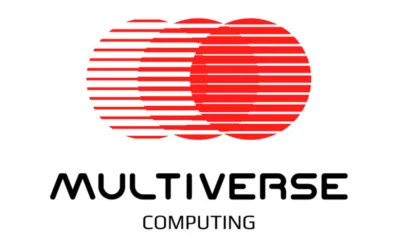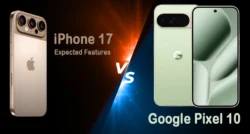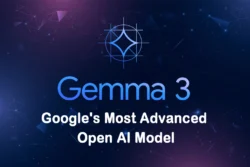
Donostia, Spain - Aug 14, 2025 (UTC) - Multiverse Computing, a pioneering European AI startup based in Donostia, Spain, has made waves in the artificial intelligence community with the release of two ultra-compact AI models: SuperFly and ChickBrain. These models, part of the company’s innovative “Model Zoo” family, are inspired by the brain sizes of a fly and a chicken, respectively, and are designed to deliver high-performance capabilities in chat, speech recognition, reasoning, and more – all while running offline on low-power devices like smartphones, IoT gadgets, and even Apple Watches.
The announcement underscores Multiverse’s commitment to making AI more accessible, efficient, and sustainable. By leveraging its proprietary quantum-inspired compression technology, CompactifAI, the company has achieved unprecedented model shrinkage – reducing sizes by up to 95% and computing costs by as much as 80% – without compromising performance. This breakthrough positions Multiverse as a key player in the shift toward edge computing, where AI processes data directly on devices, minimizing latency, enhancing privacy, and reducing reliance on energy-intensive cloud infrastructure.
Technical Specifications and Unique Features
- SuperFly: This model is a compressed version of Hugging Face’s open-source SmolLM2 135, boasting just 94 million parameters – akin to the efficiency of a fly’s brain. It’s optimized for extremely restricted data training, making it ideal for on-device applications in home appliances and low-power hardware like Arduinos. SuperFly excels in handling voice commands and basic troubleshooting, such as responding to “start quick wash” on a washing machine or answering device-specific queries.
- ChickBrain: Derived from Meta’s Llama 3.1 8B model, ChickBrain features 3.2 billion parameters and offers advanced reasoning capabilities. It can run locally on devices like MacBooks without an internet connection, supporting tasks that require natural language processing and decision-making.
Both models are embedded with unique inspirations from nature: SuperFly embodies the “clever fly” concept, focusing on minimalistic yet effective processing, while ChickBrain draws from a chicken’s brain for balanced efficiency and capability. They are available via an AWS-hosted API, often at lower token fees than competitors, enabling developers to integrate them seamlessly into applications.
Performance Benchmarks and Comparisons
In rigorous benchmarks, ChickBrain has demonstrated slight superiority over the original Llama 3.1 8B in key areas:
- MMLU-Pro: Enhanced language skills.
- Math 500 and GSM8K: Superior mathematical problem-solving.
- GPQA Diamond: Improved general knowledge retention.
While SuperFly’s benchmarks focus less on reasoning and more on operational efficiency, Multiverse emphasizes that its compression doesn’t aim to outperform the largest models but to maintain high accuracy in compact forms. The company has successfully applied CompactifAI to other open-source giants, including Llama 4 Scout, Mistral Small 3.1, DeepSeek R1 Slim, and OpenAI’s recent models, achieving similar size reductions without performance dips.
This aligns with industry trends, as seen in Tencent’s Hunyuan series (0.5B to 7B parameters) for low-power scenarios, but Multiverse’s quantum-inspired approach sets it apart by drawing from physics for more refined algorithms.
Company Background and Funding
Founded in 2019 by quantum computing experts Román Orús (a leading professor in quantum physics), Samuel Mugel, and Enrique Lizaso Olmos (former deputy CEO of Unnim Banc), Multiverse Computing has grown to about 100 employees across global offices. The startup specializes in quantum-inspired algorithms for AI optimization, machine learning, and beyond, with clients like BASF, Ally, Moody’s, and Bosch already benefiting from its compression tech in areas like image recognition.
In June 2025, Multiverse secured €189 million (approximately $215-217 million) in Series B funding, led by Bullhound Capital and including investors like HP Tech Ventures and Toshiba. This brings the total funding to around $250 million since inception, fueling the development of CompactifAI and expansions into new markets.
Applications and Real-World Impact
These models open doors for AI in resource-constrained environments:
- IoT and Edge Devices: Run chat and reasoning offline on smartphones, tablets, PCs, wearables, and appliances, enabling voice interfaces and on-the-spot decision-making.
- Sustainability: By slashing computational demands, Multiverse promotes energy-efficient AI, democratizing access for developers and enterprises.
- Broader Use Cases: From troubleshooting in smart homes to advanced analytics in autonomous systems, without cloud dependency.
As noted in recent discussions on X (formerly Twitter), the launch is generating buzz for bringing powerful AI to IoT without internet access, highlighting its potential for innovation in tech.
Executive Insights and Future Outlook
Román Orús, co-founder, stated: “We can compress the model so much that they can fit on devices. You can run them on premises, directly on your iPhone or on your Apple Watch.” He further explained the technology: “We have a compression technology that is not the typical compression technology that the people from computer science or machine learning will do, because we come from quantum physics. It’s a more subtle and more refined compression algorithm.”
Orús also teased ongoing talks with major players: “We are talking with Apple. We are talking with Samsung, also with Sony and with HP, obviously. HP came as an investor in the last round.” This suggests potential integrations that could embed Multiverse’s tech into consumer electronics soon.
Industry experts view this as a pivotal step toward sustainable AI, challenging the dominance of power-hungry models from giants like OpenAI and Meta. As reactions pour in, including from tech enthusiasts on platforms like X, Multiverse’s Model Zoo could inspire a new era of miniaturized, high-performing AI.
Contact:
Multiverse Computing Press Office
press@multiversecomputing.com





